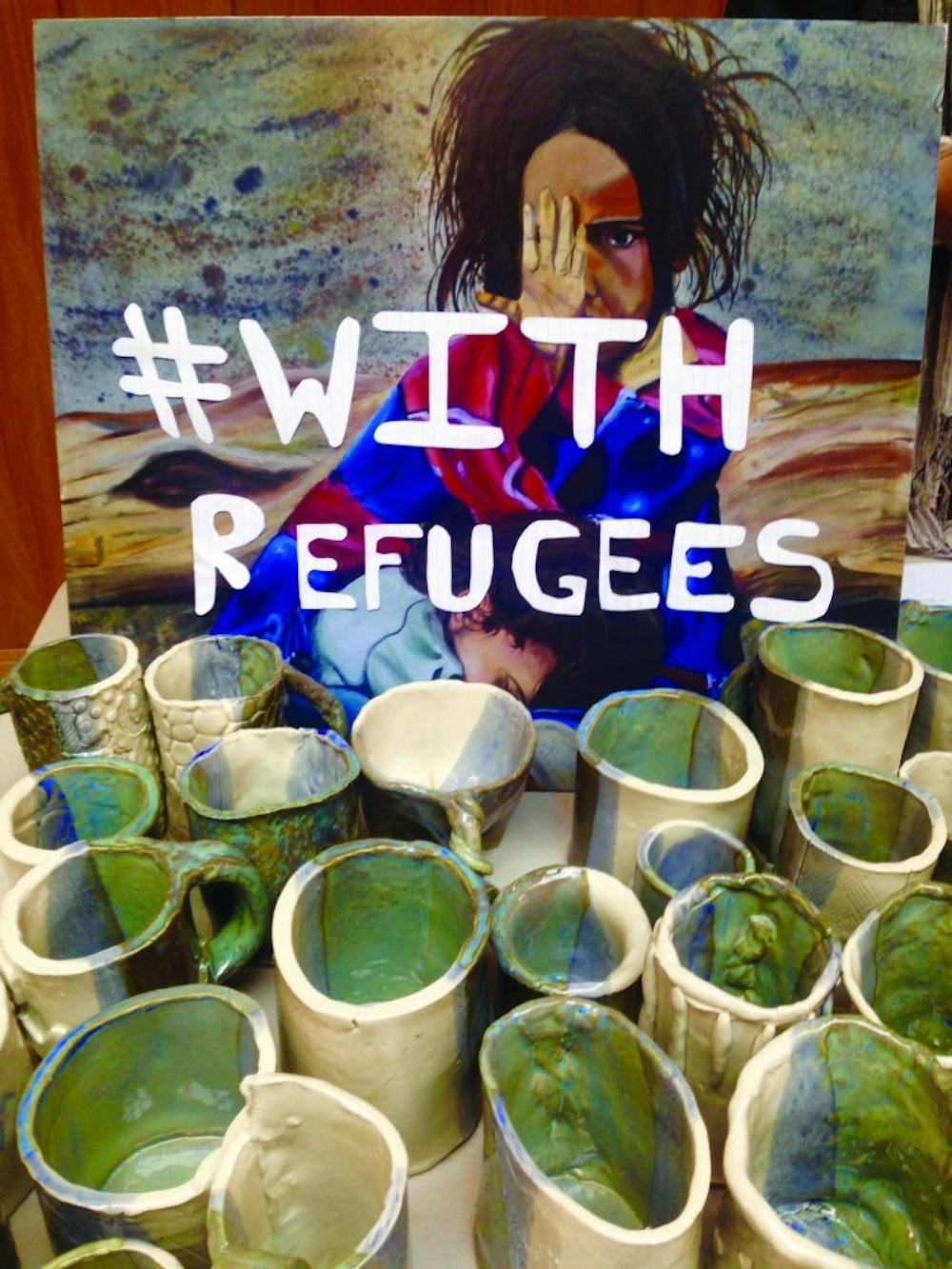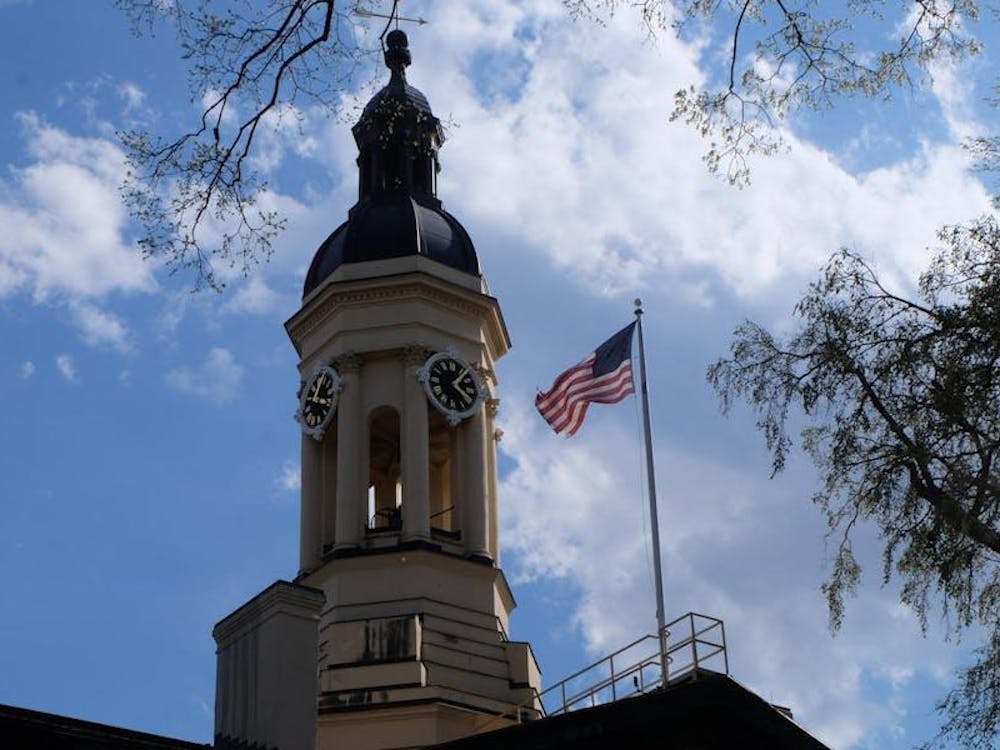The Princeton Clay Project shared students’ solidarity with refugee populations worldwide through “Princeton Stands Together #WithRefugees,” a photo campaign which took place in Frist Campus Center this past Monday and Tuesday, Dec. 5-6.
"Princeton students stand with refugees because they are human and they deserve a better life," said #WithRefugees campaign participant Naoum Fares Marayati '19.
The Clay Project, founded in the spring of 2016, is an undergraduate student initiative focused on bringing awareness to the global refugee situation, according to the official website. It works alongside the Princeton Refugee Project, a similar graduate student initiative, the Social Justice Committee of the Center for Jewish Life, and the Nassau Presbyterian Church to raise awareness.
In order to raise awareness, the Project hosts a series of fundraising events throughout the year to create higher-education opportunities through the Amal Scholarship Fund, which sends refugees living in Jordan’s Za’atari Refugee Camp to a university while allowing them to remain camp residents and community leaders, according to the website.
“There’s so much power about students helping other students, and there’s this whole generation of possible students that are Syrian refugees that don’t have access to the education that every other student has access to. What we can do as students is to try to mobilize together and try to help out in the way that we know is most possible, which is education,” said Mariachiara Ficarelli ’19, a member of the Clay Project.
The Project’s first two sponsored students, Nowar and Nassin, started university at Zarqa University this past October.
The Clay Project’s “Princeton Stands Together #WithRefugees” campaign branches off of the #WithRefugees Campaign petition launched in 2016 by the United Nations Refugee Agency, also known as the United Nations High Commissioner for Refugees.
According to the online petition, the campaign “asks governments to ensure every refugee child gets an education, every refugee family has somewhere safe to live, and every refugee can work or learn new skills to make a positive contribution to their community.”

Alongside the photo campaign, members of the Princeton Clay Project sold stickers, postcards, and mugs made by University students during their Make Mugs for Syrian Refugees event that took place in the Wilson College Ceramic Studio in November.
Mugs sold for five dollars each and stickers and postcards sold for two dollars each. All proceeds will be contributed to the Amal Scholarship Fund.
In addition to the photo campaign and fundraiser, students were able to sign a petition calling government leaders both locally and nationally to continue refugee resettlement in the United States and to ensure that Afghani and Iraqi translators for US American troops can be brought to the United States.
The Clay Project particularly hopes to raise awareness and foster empowerment in light of President-elect Donald Trump’s anti-refugee rhetoric.

“We are seeing the largest number of refugees in the world since World War II. The numbers are pretty significant, especially given that the United States has been a place of refuge for people from all over the world," said Princeton Refugee Project member Ben Reimold GS.
"As the Princeton student body actually reflects this, it’s important that we don’t lose this legacy out of fear," Reimold said. "We have a unique chance to see the political environment not as a way to kind of draw in on ourselves or retreat to our safe spaces, but to actually use it as an opportunity to get the word out to our elected officials."
Focus on influencing the University's environment and effecting change at a local level will be key to making progress on a larger scale.
“There’s a national debate about refugees, but there’s also a very local debate. If people in Princeton say ‘we want refugees in Princeton’ and tell that to their officials, then those officials are going to be more likely to support policies that bring refugees here. That takes a lot of local organizing,” said Reimold.








